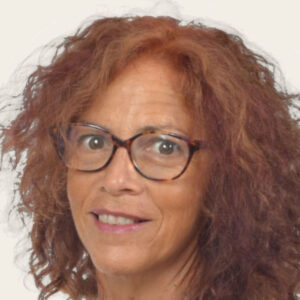- LOGIN
- REGISTER
Facilitation tools for interactive learning
- 12:00 Hours
- Lisbon or online
- On site workshop or distance learning programme
- tba

Facilitation is an non-directive approach that teachers use to help students acquire, retain, and apply knowledge and skills. In contrast to one-way presentation, facilitation involves asking questions, moderating discussions and introducing activities to help students in their learning.
Facilitated classes promote the development of critical thinking, inquiry and communication skills indispensable for self-agency and lifelong learning throughout increasingly trans-disciplinary, networked and volatile careers.
You believe that a teacher is much more than just the “sage on the stage”, and must often act like the “guide on the side”. You want to adopt and perfect a participatory and collaborative approach to help your students to develop critical thinking and curiosity through experiential learning, problem solving activities and learning projects.
This workshop is intended for teachers like you who want to improve their mastery of group facilitation tools and techniques and use them with their students in debates, problem solving, ideation and other interactive, participatory educational activities.
At the end of this programme, you will have developed your facilitation skills and mastered an array of tools and techniques that will help you achieve group buy-in and engagement as well as promote creative thinking, communication and problem solving skills among your students, including:
- Valueing different opinions
- Testing and challenging assumptions
- Avoiding biases and groupthink
- Developing new perspectives
- Generating ideas
- Minimising negative thinking
- Accepting risks
Foundations
- The concept of facilitation: “what”, “why” and “what for”?
- Facilitation in an educational context: relevance, purpose and application
- The facilitator’s role
- Facilitation skills
Managing facilitation
- Identifying the context (e.g. creatitivity, consensus seeking, securing buy-in, action planning, etc)
- Selecting the right tools and techniques
Facilitation tools and techniques
- Experimenting with and mastering different facilitation tools and techniques
Planning for continuous development
- Setting up and following a strengths-based roadmap
This is a distance learning workshop delivered in 5 x 2:30 hour sessions combining synchronous and asynchronous coursework in the following sequence:
Part 1 – Foundations and preparation
Participants are asked to watch videos, read articles and textbook material and answer quizzes to explore the foundations and check and reinforce their learning.
Part 2 – 2-day on site workshop or four live online sessions
A live, interactive, highly dynamic experience, with numerous interactive exercises and opportunities for experimenting with facilitation tools.
Participants will be asked to complete a few assignments in between sessions – e.g. facilitating a session with a tool of their choice and reporting back in the subsequent session, sharing a video, etc.
Part 3 – Follow up
Follow up online session (in both formats) approximately two weeks after the end of Part 2. Participants will be encouraged to share their post-workshop site-based coaching application.
Part 4 – Facilitation clinic (optional)
An opportunity for further improvement, supervised and coached by the workshop facilitator in online mentoring sessions – one-on-one or in small groups – to check on progress, adjust roadmap and refocus as appropriate.

Celeste D Brito graduated as a Sociologist and pursued a career in People Management for more than 20 years, having held HR Executive positions in multinational companies.
Her present work focuses on facilitation, that she describes as “creating the best conditions for individuals to contribute and share thoughts, insights and solutions as well as allowing a space where trust and commitment are fundamental and outcomes are achieved”, in the context of groups who have some common interest, goal or problem that they need to address together.
Celeste is an accredited facilitator by IAF – International Association of Facilitators where she currently serves as Regional Director for Europe and Middle East. She is also an Associate for Leadership Solutions at the Center for Creative Leadership Europe; a member of Global Future UK, Cirrus Connect UK, TLeadGo, InSync Training and MindTime; a lecturer in Porto Business School; and the founder of her own company, thebloomproject, dedicated to facilitation, consulting and mentoring.
Celeste is also actively involved in volunteer work as a facilitator and lecturer with the Fundação Manuel Violante – Social Management Academy, a non-profit created by the McKinsey Lisbon office to help community organisations improve their management skills.
On site workshops will be held in Lisbon or Cascais (Greater Lisbon Area), Portugal.
The exact location, as well as accommodation options, will be announced in due course.
- 650 € per participant for the core sessions (programme delivery + 1 follow-up session), inclusive of materials in soft copy and certificate.
- 250 € per participant for an individual 1:30 hour customised session, or 200 € per participant in groups with a minimum of 2 and a maximum of 4 participants.
Dates for the 2022-2023 school year will be announced shortly.